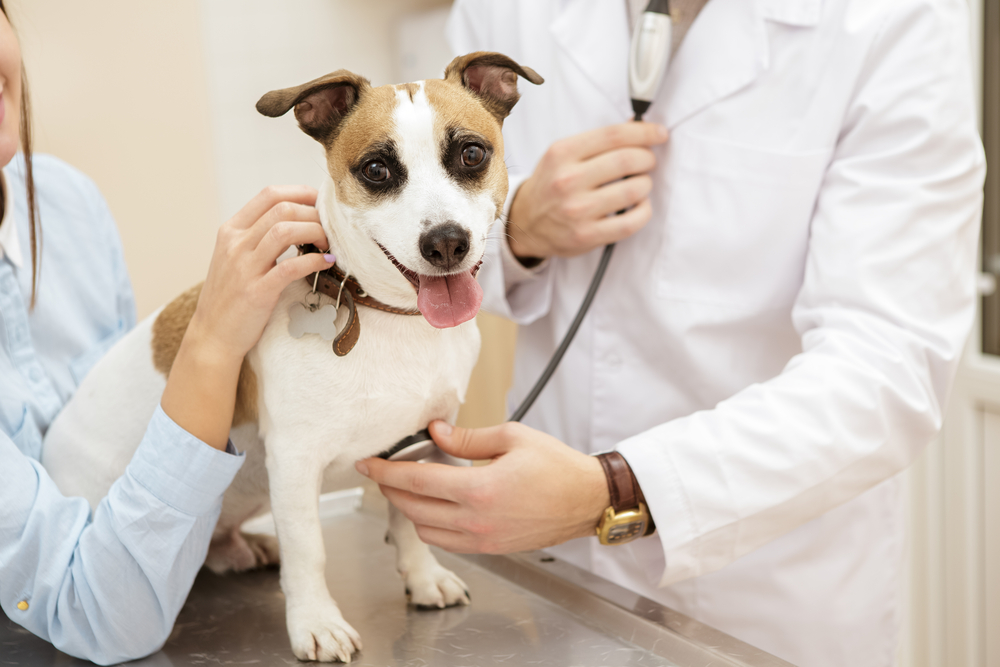
Veterinarians are a lot like doctors. You don’t just take your pet to see them when they are unwell. They are also instrumental in preventing your pet from becoming sick in the first place. This is because vets routinely offer preventative care as well as treatment, and regular exams are an ideal opportunity for your professional to give your adored animal a thorough check-up and look for any signs that they could be becoming sick. In doing so, any issues could be diagnosed and treated much more quickly – something which could:
Save your pet from suffering symptoms unnecessarily
Save your pet from the long-term effects of illness
Potentially save their life
See early treatment being successful before more unpleasant treatment options are explored or necessary
Save you money on treatment, hospitalization and more
So, how often should you take your pet in for an exam with your veterinarian? The answer to this question really depends on which stage of life your pet is in. Just like us, our pet’s health and medical requirements change with age. Very young and older animals are more likely to become unwell, while adults who are properly looked after should be at their strongest and healthiest. Here’s what you need to know about taking your pet in for regular exams based on their age.
Up to 1 Year of Age
Puppies and kittens have undeveloped immune systems, and this makes them more susceptible to illness. Your furbaby will need to have their core and non-core vaccines starting at around 8 weeks of age, and these will protect them against the most serious diseases which could threaten their health. However, they aren’t able to have the full dose in a single vaccination, and instead, they have to have smaller doses administered over a series of appointments. This means that you will need to bring your infant pet in for vaccines approximately every 3 or 4 weeks until they reach 16 weeks of age. Your vet will be able to advise you which vaccines your pet will need.
In addition to this, your vet will want to see your pet to advise you on other, at-home preventative care that you will need to provide – such as worming tablets, heartworm and flea and tick prevention. Your vet will also check that your furbaby is growing and developing normally and meeting their developmental milestone. Finally, you will be recommended to bring your pet in for spaying/neutering, which will prevent unwanted pregnancy as well as provide them with important health and behavior benefits, such as preventing testicular cancer and aggression in men or preventing uterine cancer and excessive heat-related howling in females.
Adulthood
Pets are usually considered adults between 1 and 7/10 years of age depending on their breed. At this stage of their life, they are typically recommended to visit the vet for an annual comprehensive check-up which will include everything from a physical assessment of their body to blood, urine, and feces analysis to check for the presence of diseases and parasites. Your vet may also recommend some other tests if they feel it may be beneficial based on the results of the routine assessments. Depending on your pet’s vaccination schedule, they may require booster vaccines to ensure that your furry friend remains fully protected against the many infectious diseases which could make them sick.
Senior Pets
The shortened life span of domestic animals means that age affects their bodies much more quickly than it does us. This means that depending on the breed of your pet, they could be considered seniors from as early as 7 years old. Most vets recommend that senior pets see their veterinarian for an examination twice per year. Health problems tend to develop much more quickly in older pets as their bodies are also less capable of fighting any diseases that affect them. Certain conditions, such as diabetes, kidney disease, and arthritis are more common in older pets but diagnosing and treating them early can prevent them from having a significant impact on the quality of life of your furbaby.
If your pet hasn’t seen a veterinarian for some time, or if you have any questions about how often your pet should have an exam, don’t hesitate to get in touch with our family pet clinic in Lakeville, MN to schedule an appointment.







